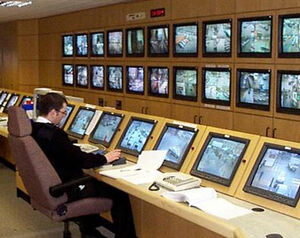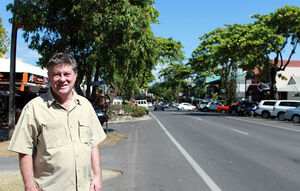
Thinking outside the budget box on CCTV issue
Friday October 11 2013

Thinking outside the box on CCTV issue
Last week in New Zealand, Wellington Police and Wellington City Council called for 20 volunteers to monitor the 13 CCTV cameras installed around the central city.
It’s a novel approach to providing a cost-effective surveillance system to prevent and reduce crime or disorderly behaviour, plus free up limited police resources. The Wellington system has an existing roster of police-trained volunteers who monitor the network screens, and is inviting “naturally inquisitive – but also cool and calm by nature” individuals to join them.
The news comes after continued discussion over the feasibility of a Douglas Shire CCTV network.
Douglas Shire Council candidate Ken Dobbs said he raised the issue of CCTV in Port Douglas with the Council CEO in 2011, when Mr Dobbs was President of the Chamber of Commerce. As a result, a security company furnished a report on various options to combat behavioural issues in the town’s CBD.
In a ![]() Wellington Scoop article on October 4, Wellington Police Community Services Manager Matt Boyce said they were looking for people who could give up some of their spare time to help prevent crime and make the central city a safer place to live, work and play.
Wellington Scoop article on October 4, Wellington Police Community Services Manager Matt Boyce said they were looking for people who could give up some of their spare time to help prevent crime and make the central city a safer place to live, work and play.
“Volunteers learn new skills, get to meet and work with new people and give something back to the community,” Mr Boyce said.
Mr Dobbs said during Chamber meetings, local police expressed support for CCTV. Chamber later sent a letter to Council via Division 10 councillor Julia Leu on April 7 that year, asking them to consider installing eight cameras in particular locations.
However, Mr Dobbs said Council wasn’t prepared to green light the project, citing high costs and a lack of suitable technology for Port Douglas.
Mr Dobbs said now, as then, he “fully [supports] the use of CCTV as a means of controlling behaviour problems in the CBD.”
He believes a new Council offers an opportunity to revisit the issue and consider it from a fresh perspective.
“The 2011 proposal required monitoring in Cairns, which would not necessarily apply with a new Douglas Shire Council.
“There have been significant advances in technology [since 2011], which may also make such a system viable.
“Processes for internet monitoring are improving all the time,” he said. Plus, though high quality but budget-friendly cameras, like the GoPro, aren’t appropriate for a local CCTV network, they’re an indication of the sort of technology now available.
“The largest cost is in the monitoring of the cameras, not the installation of the hardware. The new Douglas Shire Council will not have any significant funds to install a monitored CCTV system,” he said.
Mr Dobbs said he would like to see a partnership formed between the new Council, the business community and local police. Together, they could explore the viability of a CCTV system within a limited budget, with new cameras in addition to existing ones installed and monitored by Macrossan Street retailers.
“If some of these existing cameras were included in a joint public/private sector arrangement, it may make the CCTV surveillance of Macrossan Street possible at a reasonable cost.”
Mr Dobbs also proposed establishing a Port Douglas CBD Safety Committee, which could then be used as a template to develop a similar committee in Mossman.
"At this stage, I see the CCTV coverage restricted to the [Port Douglas] CBD areas only, but this could be reviewed if there is a later need and the CBD project is successful," he said.
“A safe and secure CBD is necessary for a successful and growing tourist industry.”

